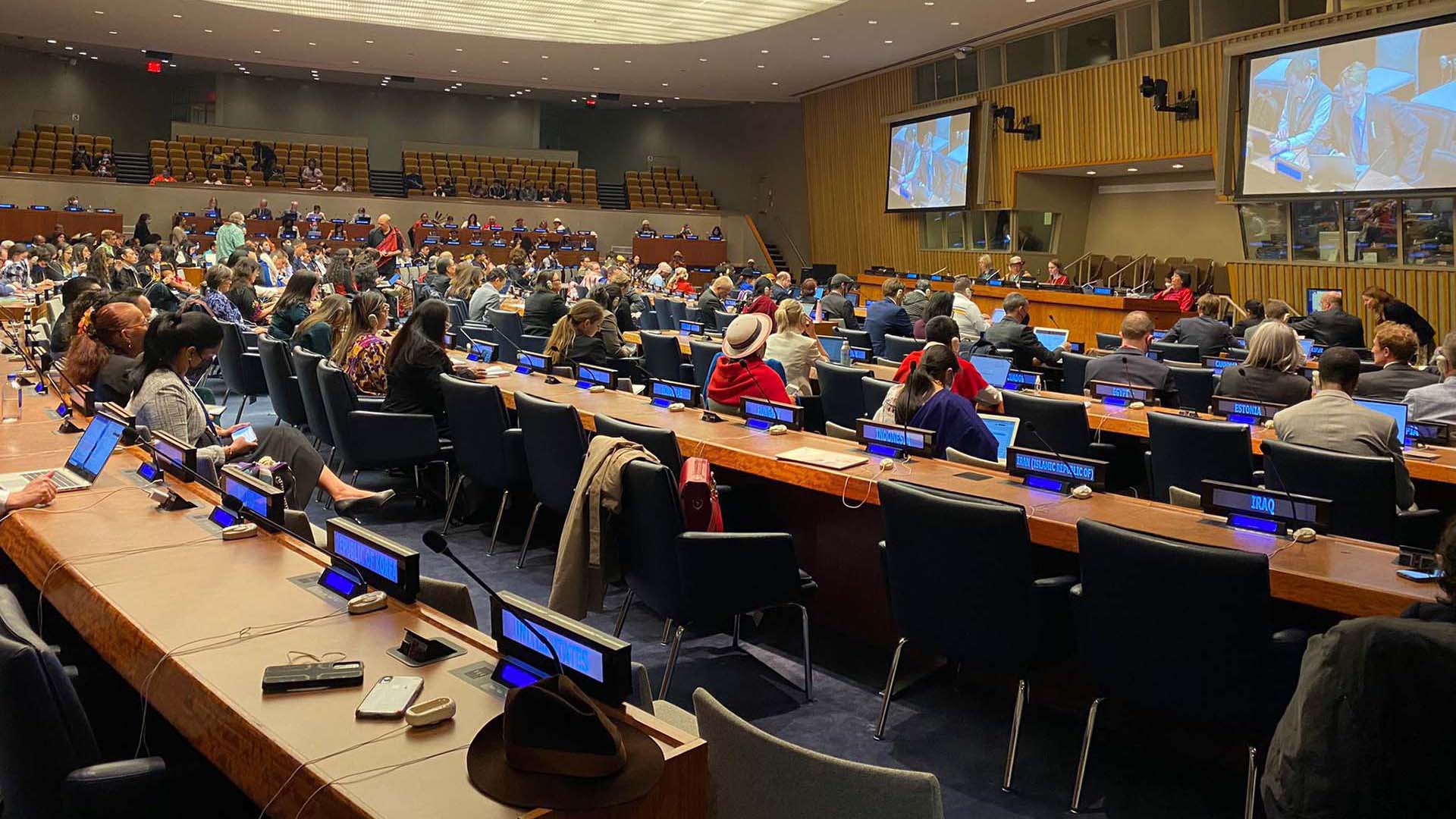Indigenous Peoples Rights International-IPRI was established to address the worsening criminalization and violence against Indigenous Peoples, and the impunity that often prevails. We have been collaborating closely with the Special Rapporteur on the Rights of Indigenous Peoples on these issues and we deeply appreciate his attention and action.
As indigenous communities are grappling with the serious adverse impacts of climate change, we are also experiencing further violations of our collective rights with the imposition of climate change solutions. These are biofuel plantations, large dams, windmill farms on one hand without our free prior and informed consent; and evictions caused by discredited fortress conservation measures and programs on the other hand. These systemic violations of the rights of Indigenous Peoples to our lands, territories, and resources, to our self-determination and cultural integrity, needs more attention and action by the UN and relevant bodies. In this context, we recommend that the Special Rapporteur prepares a report to be presented to the Human Rights Council on Indigenous Peoples Rights in the Context of Climate Change Impacts and Actions, especially mitigation and adaptation measures. The report could contribute to the future work of the recently appointed Special Rapporteur on Human Rights and Climate Change providing a rights-based focus on Indigenous Peoples.
As part of the preparation of this report, it would be important for the Special Rapporteur to conduct dialogues with Indigenous Peoples, states, relevant UN bodies and key actors to obtain information and to develop key recommendations and measures to protect the rights of Indigenous Peoples, including to a healthy environment in climate actions. IPRI extends its utmost cooperation for the conduct of this highly relevant report.
As stressed by former Special Rapporteurs and the EMRIP, most of the rights contained in the UN Declaration on the Rights of Indigenous Peoples are already guaranteed by major international human rights instruments and have been given significant normative strength, including through the work of the treaty bodies, regional and national courts. IPRI is pleased to inform the EMRIP and others that we have now issued a Digest containing legislation and jurisprudence upholding the rights of Indigenous Peoples at the international, regional and national levels from the period January 2019 to March 2020. These decisions and recommendations relate to our rights to lands, territories, and resources, to practice our traditional occupations, to Free Prior and Informed Consent, to identity and culture, self-determination, non-discrimination, protection of children from the impacts of climate change, right to a healthy environment (e.g., the impacts of mining), freedom from torture and arbitrary arrest, among other things. The implementation of these decisions and recommendations as part of states’ human rights obligations could lead to transformational changes in indigenous communities in the realization of their rights.
In this context, IPRI would like to recommend to the EMRIP to conduct a study on the implementation of legislation and jurisprudence relating to Indigenous Peoples’ rights at the international, regional and national levels; and to make this a theme for its session in 2023. Indigenous Peoples Rights International extends its full cooperation to the EMRIP for this important undertaking.
Thank you.


